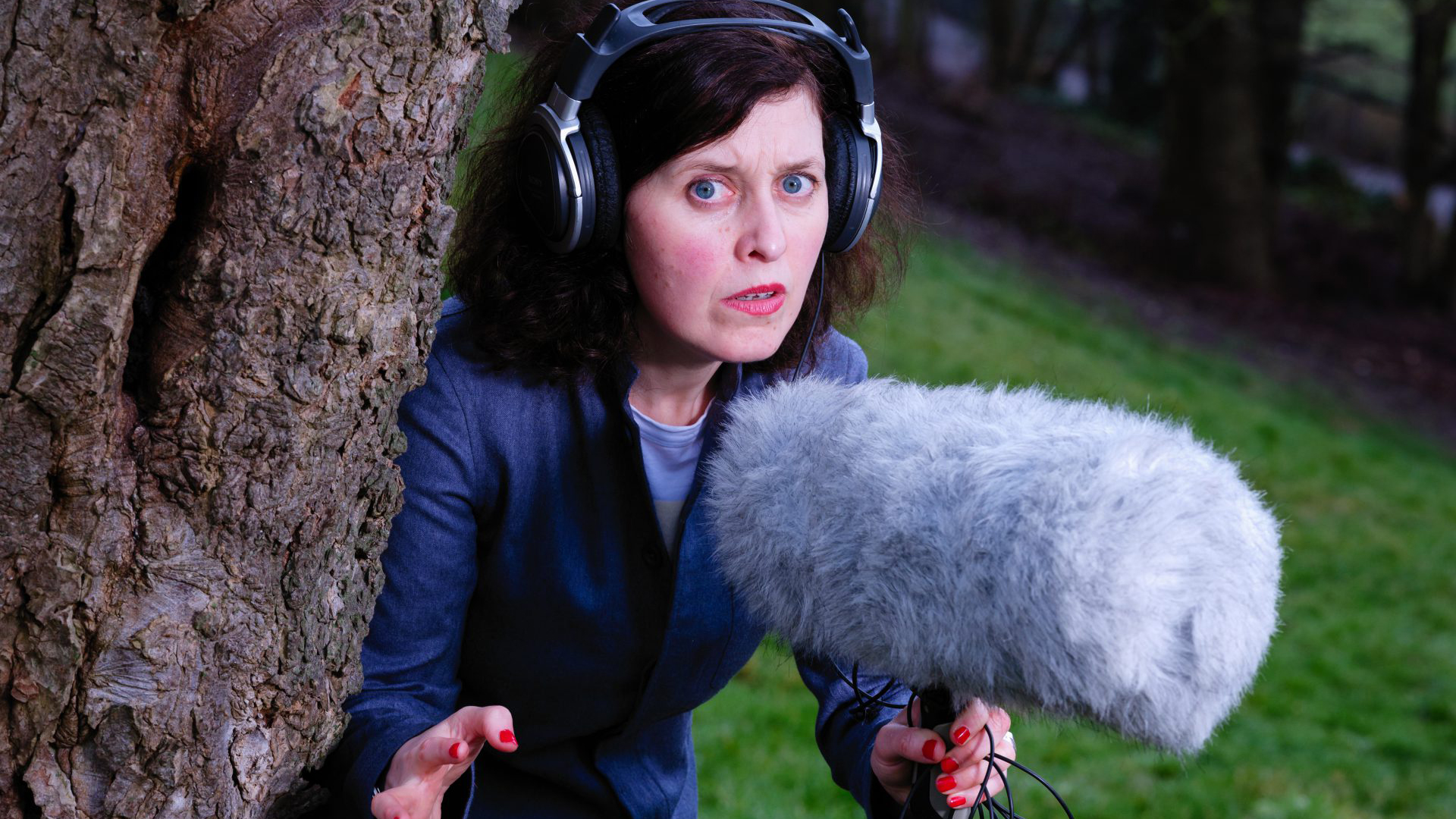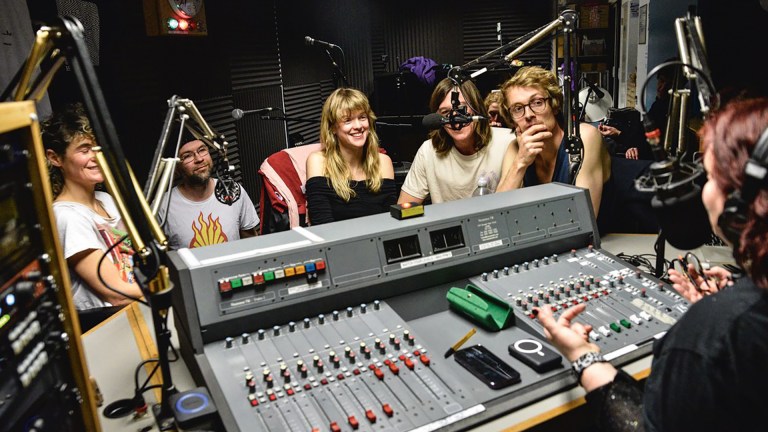While some performers seem omnipresent in the media, there are so many fascinating and original voices who are not given the exposure they deserve.
Joanna Neary is one of them. She has made me laugh until I have wept when I have seen her live. She has performed eccentric dances in fleshy body suits to Miley Cyrus’s Wrecking Ball and intense suicidal choreography as a deranged Top of the Pops’ Pan’s Person to Harry Nilsson’s Without You. Her performance as an overly nervous woman attempting to give a talk about how to use sex toys is so believable that I once saw someone walk on stage to give her a glass of water as they were so worried about her.
Her most-often-visited character is Celia, a lovelorn woman based on Celia Johnson’s character in black-and-white classic Brief Encounter. Trapped in a modern world with dull husband Fred, who is usually immersed in sudoku or making models of junkers, their twin beds are divided by a Teasmade. Fred once read to her in bed – it was a Screwfix advert for drill bits that entertained him due to a pricing error.
Celia finds herself lost in reveries of romantic abandon involving pretty much any man who has delivered her groceries, cut a hedge or climbed a mountain. She has now made this character into a podcast series – Wife on Earth – which is funny, absurd, but also beautifully sad. Poor Celia, living in the dreams of what might have been, but also finding solace in Fred’s ability to locate the squeak in a filing cabinet and sort it out. What he lacks in lust he makes up for with judicious use of WD40.
John Hegley is a poet and autodidact with a curious mind and the finest song about guillemots
Procrastinating by lurking around BBC Sounds and searching with non-sequiturs to see what programmes popped up, I found another voice that I think is not heard enough: John Hegley.
Hegley is a poet and autodidact with a curious mind and the finest song about guillemots. Like Neary, he has made me apoplectic with laughter, particularly when performing dances with pieces of string. While others may be able to quote Keats, I am able to recite the entirety of his poem Eddie Don’t Like Furniture. He frequently used to celebrate wearing glasses, which is something myopic youths needed in the 1980s before spectacles became more of an acceptable fashion accessory. On stage, he is like the most wonderful eccentric schoolteacher, at times curt, and then flamboyant, then joyously mad.









